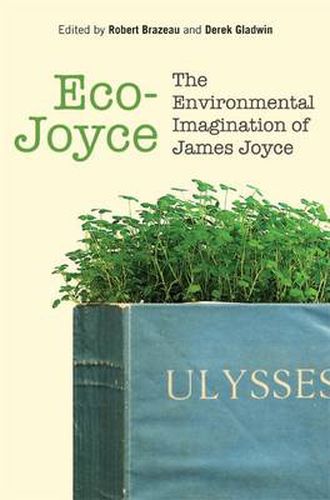Readings Newsletter
Become a Readings Member to make your shopping experience even easier.
Sign in or sign up for free!
You’re not far away from qualifying for FREE standard shipping within Australia
You’ve qualified for FREE standard shipping within Australia
The cart is loading…






This collection introduces and examines the overarching ecological consciousness evinced in the writings of James Joyce. Reading Joyce with a keen attention to the manner in which the natural and built environment functions as context, horizon, threat, or site of liberation in Joyce’s writing offers an engaging and fruitful way into the dense, demanding, and usually encyclopedic formation of knowledge that comprises Joyce’s literary legacy. Scholars working within Irish studies draw on a wide variety of critical outlooks, including cultural studies, post-colonial studies, transnational studies, gender studies and, of course, modernist studies; this book will help that community become better acquainted with how ecocriticism elucidates the work of Irish writers, and will encourage further research in this direction. Even writers like Joyce, who are usually regarded as primarily urban, exhibit a strong ecological dimension in their work, and there are many other Irish writers who have produced work that directly engages issues in ecology and environmental studies. Eco-Joyce covers a multitude of disciplines in an attempt to serve as a point of entry into Joyce and ecocriticism, of course, but it will also suggest ways in which Irish studies and modernist studies could gain energy from this relatively new and vital approach.
$9.00 standard shipping within Australia
FREE standard shipping within Australia for orders over $100.00
Express & International shipping calculated at checkout
This collection introduces and examines the overarching ecological consciousness evinced in the writings of James Joyce. Reading Joyce with a keen attention to the manner in which the natural and built environment functions as context, horizon, threat, or site of liberation in Joyce’s writing offers an engaging and fruitful way into the dense, demanding, and usually encyclopedic formation of knowledge that comprises Joyce’s literary legacy. Scholars working within Irish studies draw on a wide variety of critical outlooks, including cultural studies, post-colonial studies, transnational studies, gender studies and, of course, modernist studies; this book will help that community become better acquainted with how ecocriticism elucidates the work of Irish writers, and will encourage further research in this direction. Even writers like Joyce, who are usually regarded as primarily urban, exhibit a strong ecological dimension in their work, and there are many other Irish writers who have produced work that directly engages issues in ecology and environmental studies. Eco-Joyce covers a multitude of disciplines in an attempt to serve as a point of entry into Joyce and ecocriticism, of course, but it will also suggest ways in which Irish studies and modernist studies could gain energy from this relatively new and vital approach.